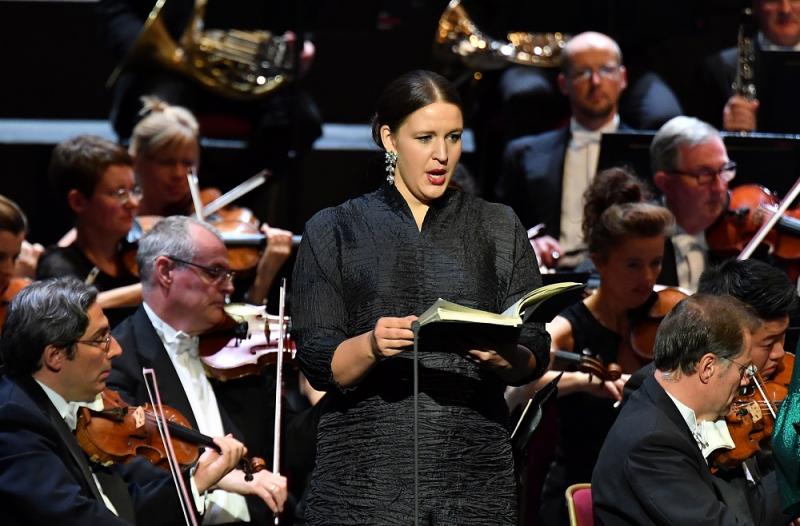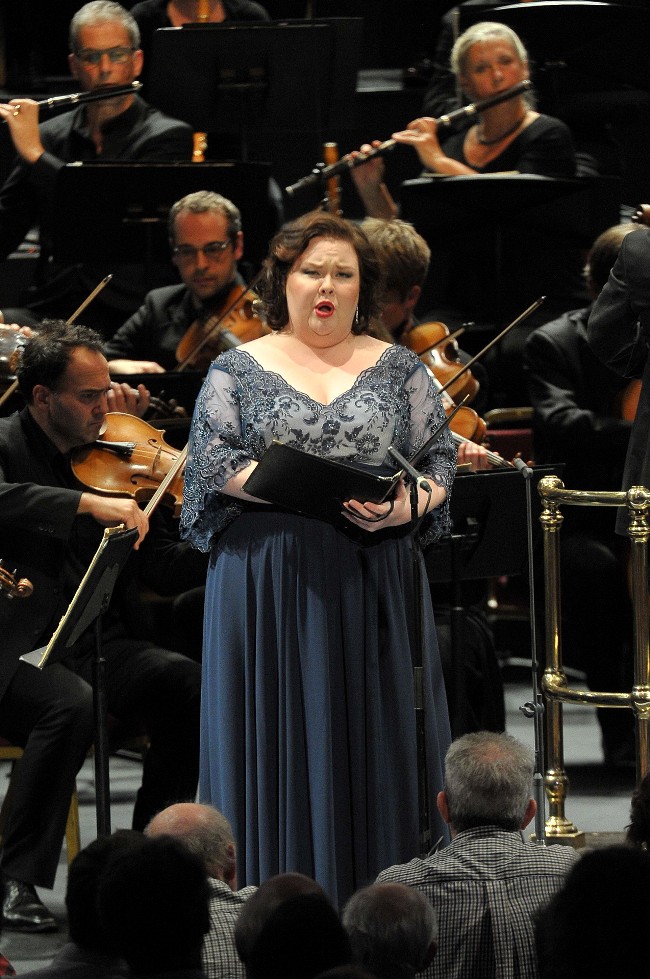Verdi's Requiem, Royal Opera, Pappano review - all that heaven allows | reviews, news & interviews
Verdi's Requiem, Royal Opera, Pappano review - all that heaven allows
Verdi's Requiem, Royal Opera, Pappano review - all that heaven allows
Incandescence from soloists, chorus, orchestra and conductor in a near-perfect ritual

Here it comes - get a grip. The tears have started flowing in the trio "Quid sum miser" and 12 minutes later, as the tenor embarks on his "Ingemisco" solo, you have to stop the shakes turning into noisy sobbing. The composer then lets you off the hook for a bit, but only transcendent beauty in singing and playing can achieve quite this effect in Verdi's Requiem.
Pappano has been Music Director of the Royal Opera for 16 glorious years out of the 50 since the granting of the Royal Charter to what was then the Covent Garden Opera Company. In a typically personable speech before the performance he observed not only that but the passing of great soprano Montserrat Caballé - who can be seen on YouTube getting the giggles at Abbado when trying to pitch the opening of the final "Libera me" sequence in rehearsal - and the commemoration of the First World War. If you wanted a space to grieve, this was it. Orchestra and chorus entered like the gentlest of breaths; the basses' first forte entry at "Te decet hymnus" showed us what they could do at the other end of the scale; the four soloists took that breath away, while using theirs for maximum control, at their staggered entries in the "Kyrie".

Though Davidsen is easing in to Wagner's Ring at the Royal Opera as Freia, subordinate Valkyrie and a Norn - hence her availability before the final cycle gets under way - it would be a shame to send her too soon into the Wagnerian flames as the Brünnhilde she's so obviously cut out to be, both vocally and physically (she looks every inch a young, tall Nordic goddess). On this evidence we first need to see and hear her as Verdi's Elisabetta, Forza Leonora and even Aida. The softer singing is luminous indeed - though the famous top B flat in the "Libera me" was not quite pppp as marked, it could have lit a coronet of candles with its mesmerising flame - and the messa di voce, the essential swelling and sometimes withdrawing of sound, builds to a Nilssonesque ring that has to be experienced live.
 Davidsen knows how to use powerful, "white" (ie non-vibrato) tone to emotionally piercing effect, as in the keenings within the full ensemble of the "Lacrimosa"; there doesn't seem to be any weakness in the glorious chain mail. This is the most exciting leading "role" debut I've witnessed taken by a soprano at the Royal Opera since Anja Harteros stepped into Nina Stemme's shoes as the Doge's daughter in Simon Boccanegra.
Davidsen knows how to use powerful, "white" (ie non-vibrato) tone to emotionally piercing effect, as in the keenings within the full ensemble of the "Lacrimosa"; there doesn't seem to be any weakness in the glorious chain mail. This is the most exciting leading "role" debut I've witnessed taken by a soprano at the Royal Opera since Anja Harteros stepped into Nina Stemme's shoes as the Doge's daughter in Simon Boccanegra.
Yet this was by no means just Davidsen's evening, even if Verdi makes sure that of the soloists, the soprano is the last standing at the great day of judgement. There was ringing Italianate sound from French tenor Benjamin Bernheim (pictured above by Julien Benhamou), modified when necessary to a quiet incandescence, most movingly so in the Offertorio's "Hostias". Duets and trios were perfectly adjusted, abetted where necessary by the dramatic backing of the Royal Opera Chorus. Words were not always as clearly projected as they might have been, chorally speaking, but they became so in the final cries and whispers. And Pappano held a silence at the end which could have gone on for ever. A Verdi Requiem for the ages; praise be that it was broadast live by BBC Radio 3 and preserved for posterity.
rating
Share this article
The future of Arts Journalism
You can stop theartsdesk.com closing!
We urgently need financing to survive. Our fundraising drive has thus far raised £49,000 but we need to reach £100,000 or we will be forced to close. Please contribute here: https://gofund.me/c3f6033d
And if you can forward this information to anyone who might assist, we’d be grateful.

Subscribe to theartsdesk.com
Thank you for continuing to read our work on theartsdesk.com. For unlimited access to every article in its entirety, including our archive of more than 15,000 pieces, we're asking for £5 per month or £40 per year. We feel it's a very good deal, and hope you do too.
To take a subscription now simply click here.
And if you're looking for that extra gift for a friend or family member, why not treat them to a theartsdesk.com gift subscription?
